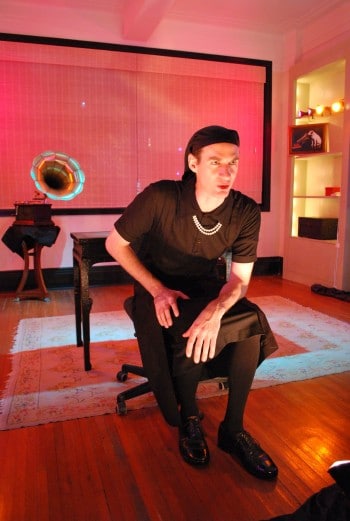Adelaide Fringe: I Am My Own Wife
Pamela Munt’s enterprising Bakehouse Theatre plays host to Doug Wright’s Pulitzer and Tony award-winning show I Am My Own Wife in its intimate Studio theatre.

While much has been made of 1 actor playing 35 characters over 100 minutes, essentially Wright has written a character play about himself and his subject – the effervescent Charlotte von Mahlsdorf.
It’s not only the unique subject matter – a transgendered person who was brutalised as a child by her Nazi father, murdered him, was gaoled for the act and went on to set up a Weimar style “museum” which survived the SS and the Stasi while maintaining it’s presence as a safe place for gay people of the district. Wright’s script expresses an emotional poetry with a range that is both subtle and effective. He also introduces an element of doubt to the storyline, which lingers on in the audience’s mind long after the show has finished. Mahlsdorf’s story is engrossing, at times deeply touching and thought-provoking and Wright is shrewd enough to apply comic moments at the right time to release the built-up tensions of the unfolding drama.
Thankfully the actor, Charles Mayer, is up to the task and manages to sustain the quality of the nuances in the script with a naturalistic style while successfully avoiding a descent into parody. The tiny stage, combined with Mayer’s masculine frame (he spent 11 years in the British army before becoming an actor) actually helps accentuate the political and psychological dynamics of the role and Mayer used his body exceptionally well to define different characters in different situations.
Craig Behena’s direction ably assists the actor with a swift pace throughout the show and Matthew Chapman, as tech operator, deserves an award for his own exquisite timing.
Festivals sometimes form an outstanding synthesis and this is one such occasion.
Marilyn Monroe once asked Truman Capote what he would say if anybody asked him what Monroe was really like. He replied he’d say she was “a beautiful child”. Despite the difficulties she faced, the essence of that remark seems to complete Wright’s examination of Mahlsdorf.

